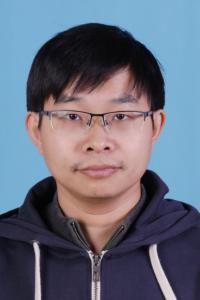Category
Position
Email
yuminghe@mail.ustc.edu.cn
Address
Room B1105-1, Physical Science Park, University of Science & Technology of China, 96 Jin Zhai Rd., Hefei
Introduction
Yu-Ming He received his PhD from University of Science and Technology of China in 2014. After that, he took the Postdoctor position at the University of Wuerzburg. In 2016, he joined Professor Jian-Wei Pan’s research team. His research interests include semiconductor quantum dot single photon source and TMDs(Transition Metal Dichalcogenides) quantum physics. He has published more than 15 articles (10 as c in journal including Nature Nanotechnology, Nature Communications, Physics Review Letter, Nano Letter and Optica. He is awarded Outstanding Doctoral Dissertation of China Academic of Sciences in 2016.
Related Publications
- High-efficiency single-photon source above the loss-tolerant threshold for efficient linear optical quantum computing. Nature Photonics (2025). doi:10.1038/s41566-025-01639-8
- Realization of an untrusted intermediate relay architecture using a quantum dot single-photon source. Nature Physics 21, (2025).
- Heralded Three-Photon Entanglement from a Single-Photon Source on a Photonic Chip. Physical Review Letters 1-5 (2023).
- Quantum interference with independent single-photon sources over 300 km fiber. Advanced Photonics 4, 1-7 (2022).
- On-Demand Semiconductor Source of Entangled Photons Which Simultaneously Has High Fidelity, Efficiency, and Indistinguishability. Physical Review Letters 122, 113602 (2019).
- Quantum Interference between Light Sources Separated by 150 Million Kilometers. Physical Review Letters 123, 080401 (2019).
- Boson Sampling with 20 Input Photons and a 60-Mode Interferometer in a 1014 -Dimensional Hilbert Space. Physical Review Letters 123, 250503 (2019).
- Coherently driving a single quantum two-level system with dichromatic laser pulses. Nature Physics 15, 941-946 (2019).
- Quantum Interference between Light Sources Separated by 150 Million Kilometers. PHYSICAL REVIEW LETTERS 080401, 1-7 (2019).
- Towards optimal single-photon sources from polarized microcavities. Nature Photonics 13, 770 (2019).
